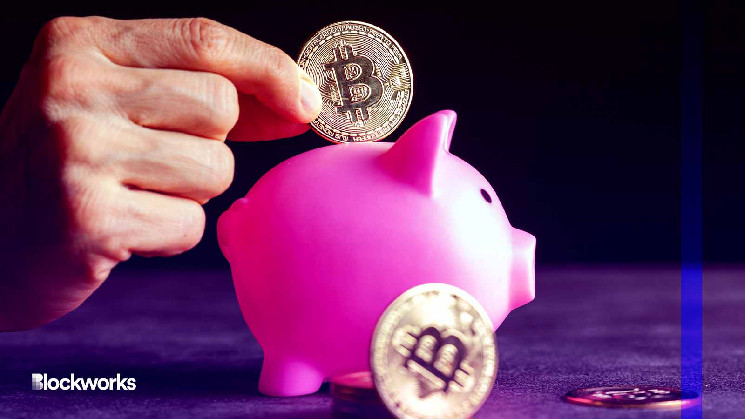20 million dollars.
“It’s not massive in the grand scheme of things,” says Tyrone Lobban, “but it’s not immaterial either.”
When JPMorgan deals with 10 trillion dollars in traditional payment flows on a given day, 20 million looks like a pretty small number in comparison. But it’s certainly not a bad start for clients looking to save on financial services.
One such service is a “repo,” or repurchase agreement. It’s a standard financial instrument that JPMorgan provides, allowing clients to enter into a “borrowing facility.”
But a repo is not something that can normally settle on the same day, Lobban says. “I can’t give you assets as collateral and you give me cash and at the end of the day, we do the reverse.”
On the Empire podcast (Spotify/Apple), the head of blockchain launch and Onyx digital assets at JPMorgan says this limitation vanishes with blockchain tech. “With smart contracts and this idea of tokenizing traditional assets, we can actually now do that.”
“We can tokenize US Treasurys,” he says. “We can tokenize cash in the form of JPMorgan coin [JPM coin] and we can actually instantiate these assets as smart contracts and this trade as a smart contract.”
Using blockchain tech, Lobban explains, “you can have very, very precise times as to when you’re going to enter into the trade and when the funds are going to be returned.” This results in a reduction in cost, with Lobban estimating that by the end of next year, the savings will be “on the order” of $20 million.
“Can I get access to capital in a lower cost way? Can I be more efficient with my capital?” Lobban says. “Instead of having to lock it up overnight, can I actually get access to those assets today and can I be more precise about how I’m going to be using my funding?”
All of these factors, “especially in a tightening rate environment or in times of stress around liquidity” become “impactful,” he says.
A positive trajectory
Not only does this result in cost savings, but it adds new utilities, Lobban continues. “All of a sudden, you can use your assets in a way that you couldn’t use them before.”
Lobban gives the example of asset management giant BlackRock, who he says are “looking to tokenize money market fund shares.”
“They want to provide utility to their investors who are actually looking to potentially pledge those shares as collateral.”
“Instead of redeeming out of the fund, going to get access to cash, [and then] going to post that cash as collateral, the investors can just stay invested and use those shares in a way that they couldn’t have.”
The service is growing, Lobban says. “In terms of the trajectory and the growth we’ve seen in the first half of the year in [2023], we processed as much as we processed through the whole of [2022].”
It’s a “significant uptake,” Lobban says, with more clients joining the platform, “but also clients seeing more value and actually looking to use it more frequently than they were.”
He expects to see the trajectory double through next year. “This is still sort of small numbers in the grand scheme of things,” he admits. “But I think the proof point is real.”
“We have global clients looking to use these products and in some sense, almost not caring that it’s blockchain, right? They just want access to this new feature.”
It’s “a really strong signal for us.”
 blockworks.co
blockworks.co
